There’s always some attraction attached to free services. VPNs are no different. As long as there are free alternatives to premium VPNs, there will be people interested in getting them, irrespective of the risks attached.
And there are lots of risks attached to using free VPNs on your Android device. In fact, VPN Jedi does not recommend them in most cases. If you can afford to, you should definitely opt for a premium VPN service from a good provider, like ExpressVPN. That way, you can gain access to top of the line services without having to pay over the top, with peace of mind to go along with it.
Limitations of Free VPNs on Android
When you go online using a VPN, you expect the VPN to protect your internet traffic and offer you complete privacy. VPNs create a secure, encrypted tunnel between your Android device and a private network server, through which your traffic is then routed. This encrypted tunnel ensures that your sensitive data stays safe and is insulated from attempts to snoop on or intercept it.
VPNs are also supposed to help you bypass geographical restrictions to access content on websites and other content platforms. They help bypass Government censorship of the internet too.
So why should you pay for a premium VPN if a free version can offer you the internet security and privacy that you need? Free VPNs promise access to the same security and privacy you can expect from paid versions.
Well, to begin with, not all VPNs are created equal. Even premium VPNs come with different levels of security features and functionality. It costs a lot of money to operate and maintain a VPN service, and that money must be made somehow. When you pay for a premium VPN, you pay for trust and the assurance that your privacy and security are a priority.
So what are the drawbacks that come with using free VPNs?
1. Privacy and Security
The most essential function of a VPN is to ensure that users are insulated from bad actors on the internet. You pay for this service directly when you opt for a premium VPN. With a free one, the payment is indirect as nothing comes for free entirely.
Free VPN providers are businesses, and businesses have to make a profit somehow. A lot of the time, this profit comes from ads. Now, these ads may seem no different from what you are used to, but they are targeted at you and tailored based on your internet activities. In essence, free VPNs may gather your data and sell them to third parties.
2. Slower speeds and limited bandwidth
Imagine sitting down to binge-watch your favorite TV show, only to be hit with throttled internet speeds. That would be frustrating right? Well, that’s often the case with using free VPNs for data-heavy tasks like streaming, torrenting and heavy downloads.
Even when your bandwidth is not throttled, you may find that free VPNs are only optimal for casual browsing because of the snail-paced speeds many of them provide.
3. Poor Customer Support
Users pay for quality customer support, even if they don’t realize it. For customer satisfaction and to retain them, premium VPNs are obliged to provide excellent customer service. And so you get a variety of ways to contact support, together with helpful knowledge bases, for self-help.
Free VPNs less likely to provide this class of service to their customers.
4. No Simultaneous Connections
You can expect to connect to the internet on a number of devices at the same time on a single premium VPN subscription. This is not the case with free VPNs. If you own multiple devices and you want to use a single VPN service on each of them, you may find things complicated.
The 7 Best Free VPNs for Android
In spite of the limitations associated with using free VPNs, you may still need to opt for one on your Android device. Not all users require the ton of features that paid VPNs offer, and so they may find free VPNs adequate for their needs. Additionally, free VPNs are not all bad, and some are actually relatively trustworthy.
Discovering the free VPNs that you can trust to protect your Android is not an easy task. And that’s where I come in. After extensively testing a ton of them, I’ve rounded up the best free VPN providers for Android.
1. ProtonVPN
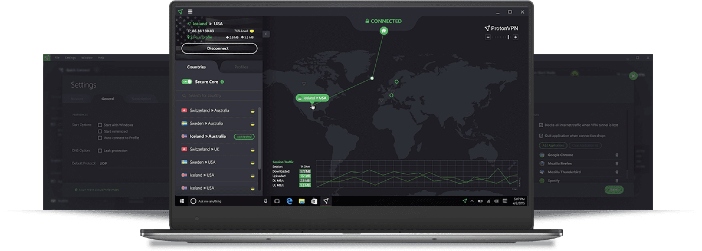
ProtonVPN is headquartered in Switzerland. That fact alone is enough to push it high up our list, because of Switzerland’s strong data privacy laws. It was launched by the creators of ProtonMail, a security-conscious email service.
Most free VPNs place data and bandwidth limits on their services. Not so with ProtonVPN. It stands out with its unlimited bandwidth and unlimited data on the free plan. You can use all the data you want, without the fear of getting throttled. With a free ProtonVPN plan, you can unblock access to streaming services like YouTube and Kodi.
ProtonVPN’s free servers are located in the US, Netherlands, and Japan. To unlock access to all its servers in 54 countries, you’ll need to upgrade to the premium plan. You’ll be eligible for a 30-day money-back guarantee to try it out risk-free.
2. Hotspot Shield
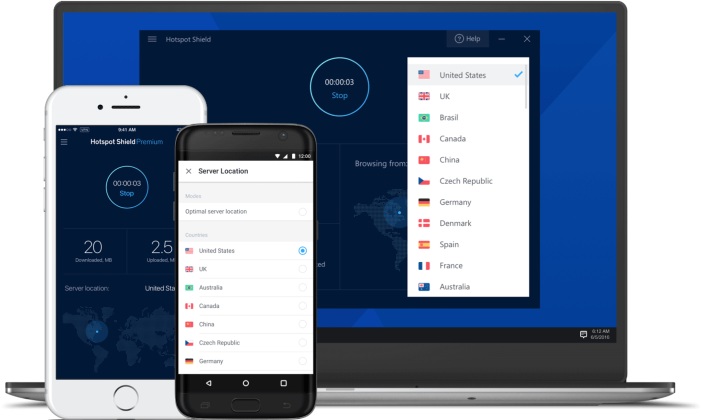
Hotspot Shield slides in second on this list with its relatively generous data limit of 500MB a day. That may not seem like much at face value, but it adds up to at least 15GB a month. It is enough to provide you with encrypted access for browsing and light download.
Customers are also allowed to connect up to five devices simultaneously on the same account. For a free VPN, that’s pretty generous. Hotspot Shield’s Android app is easy to use and offers one-click connection. This makes it a good option for VPN newbies.
On the free plan, you are limited to two server locations. Upgrading to the premium version unlocks access to 1800+ servers spanning 80+ countries. There is a 7-day trial to test out the service, together with a 45-day money-back guarantee if you subscribe.
3. Windscribe
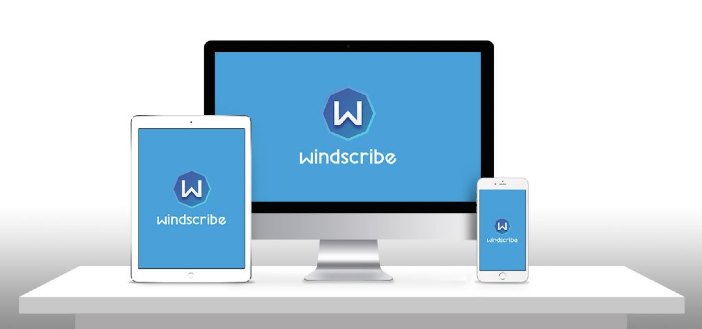
Launched only a few years ago, Windscribe is a relative newcomer to the scene. It has become highly rated in that time though. Windscribe has a 10GB per month data limit on its free plan, which may be enough for most of your internet browsing. You can earn an extra 5GB per month by referring a friend or tweeting about the company.
Windscribe regularly offers promotions that come with extra data, with as much as 20GB up for grabs. Referring a friend to sign up for the Pro plan comes with a free Pro plan reward. Windscribe takes security and privacy seriously, and no connection or identifying logs are stored. It also comes with a convenient adblocker.
The free Windscribe plan restricts access to 10 servers. Upgrading to the Pro plan comes with access to all of its servers in 63 countries. If you don’t like the service, you can get your money back within 30 days.
4. Hide.me
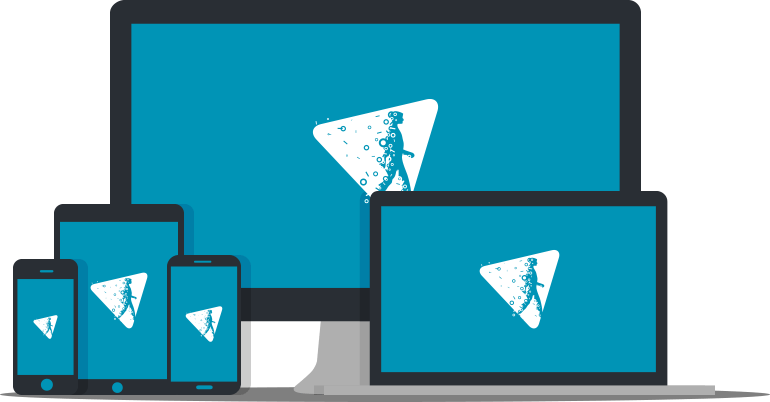
Until recently, hide.me only offered a data limit of 2GB a month. That limit has now been pushed up significantly to 10GB a month. Talk about an upgrade!
Hide.me operates a strict no-logs policy. That means that no logs of any kind are saved on its servers, and so your internet activity cannot be traced back to you. It also means your data cannot be sold to third parties. Hide.me has no ads, even on the free version. It uses bank-level encryption technology to protect your data.
You can browse securely on five of its servers on the free plan. If you upgrade to its premium plan, you get to connect to the rest of its servers in 70+ countries. The premium plan comes with a 30-day money-back guarantee.
5. PrivateVPN
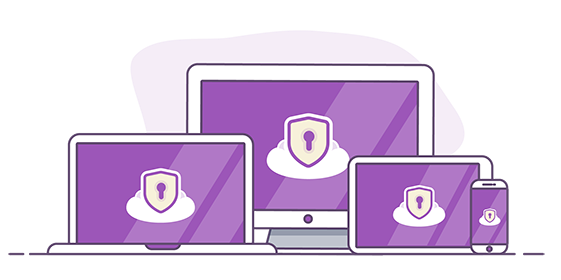
I know, I know, PrivateVPN is a premium VPN and so you’re surprised it makes this list. But it does offer a 7-day free trial, and for the features, you get to enjoy in that time, it earns a place here.
PrivateVPN’s free trial does not limit access to any of its premium features. That means you get access to its network of 150+ servers in over 60 countries. You also get to bypass geo-blocks and stream movies and TV shows on Netflix, Hulu, Amazon Prime Video, BBC iPlayer, and others.
For security and privacy, it uses military-grade AES 256-bit encryption to secure your traffic. There’s also an automatic kill switch, and a strict no-logs policy.
You can connect up to 6 devices at the same time on the free trial. PrivateVPN offers a 30-day money-back guarantee after the trial is over, to allow you to try out the premium service.
6. TunnelBear
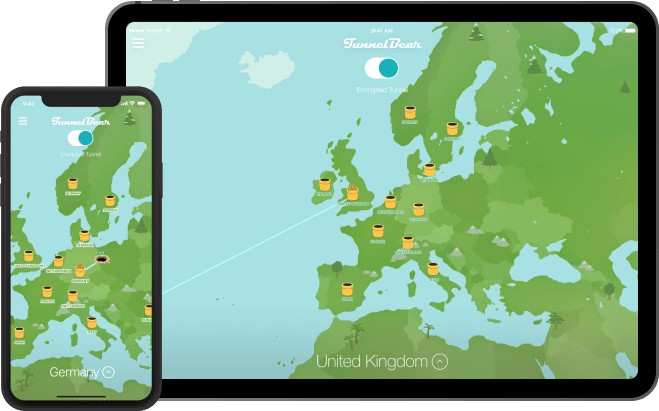
TunnelBear is a premium VPN with a free plan. The data limit on the free plan is pretty low though, capping off at 500MB per month. This is only good for keeping at standby, for those times you really need a VPN cover to access the internet.
But you get to choose from servers in 23 countries, which is markedly more than is available on most free VPNs. Tunnelbear’s free users are also covered by its excellent security features. There is a strict no-logs policy, and you are not beset by ads.
Upgrading to the premium plan unlocks all of its features, including its network of over 1800 servers. There is no money-back guarantee in place, but TunnelBear may offer refunds on a case-by-case basis, for those unimpressed by its service.
7. Speedify
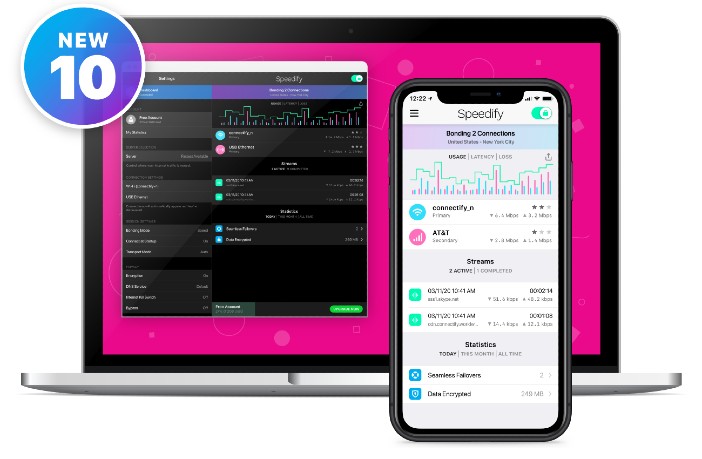
Speedify rounds up this list of the best free VPNs for Android. On its free plan, it offers a data cap of 2GB a month, which is enough for light browsing. It is a good option for newbies, with its one-click setup. Just download, install, connect, and use. It automatically connects you to the best server for your location.
The free Speedify plan grants access to all of its features, bar unlimited bandwidth and data. It unblocks access to content on Netflix US, Amazon Prime Video, Spotify, and BBC iPlayer, no mean feat for a free VPN.
Speedify does not store your online activity history. But it is important to note that it does save some logs like your IP address, Device ID, and Wi-Fi SSID. This is frankly not a good look.
You can try out its premium plan risk free with its 30-day money-back guarantee.
FAQs
1. Are free VPNs safe to use?
Well, that depends on your choice of a free VPN provider. For the most part, free VPNs are not the best decision you can make for your online safety and anonymity. This is because even though they are “free” they will still try to make money off you to generate a profit. That’s why you get pushed ads. Even worse, some free VPNs will sell your data to the highest bidder.
Still, not all free VPNs are as bad as the rest of them. If you must use one, you should select from this recommended list.
2. What information is required to sign up to a free VPN?
Again, this depends on the VPN. Different VPNs have different policies, and you should examine them individually. Some VPNs may require that you sign up with a lot of personal information like name, email, password, and bank/credit card details. Some others don’t ask for any personal information.
3. What are the limits to using a free VPN on Android?
Even the best free VPNs for your Android device come with limits that may turn out to be frustrating. For one, free VPNs are noticeably slower than the premium versions. They also come with limited bandwidth and data. The number of network servers free users have access to is generally very limited. Additionally, free VPNs are not great at unblocking geo-restrictions.
4. Are free VPNs legal?
In most countries in the world, VPNs are legal to use, free or paid. That means you would not be committing any crime using one.
Unfortunately, this isn’t always the case. Especially in countries with internet censorship regulations, VPN usage is a gray area and is frowned on. Countries like China, Russia, Iraq, Iran, Uganda, Turkey, and Oman have some sort of ban or restriction in place for VPN usage.
